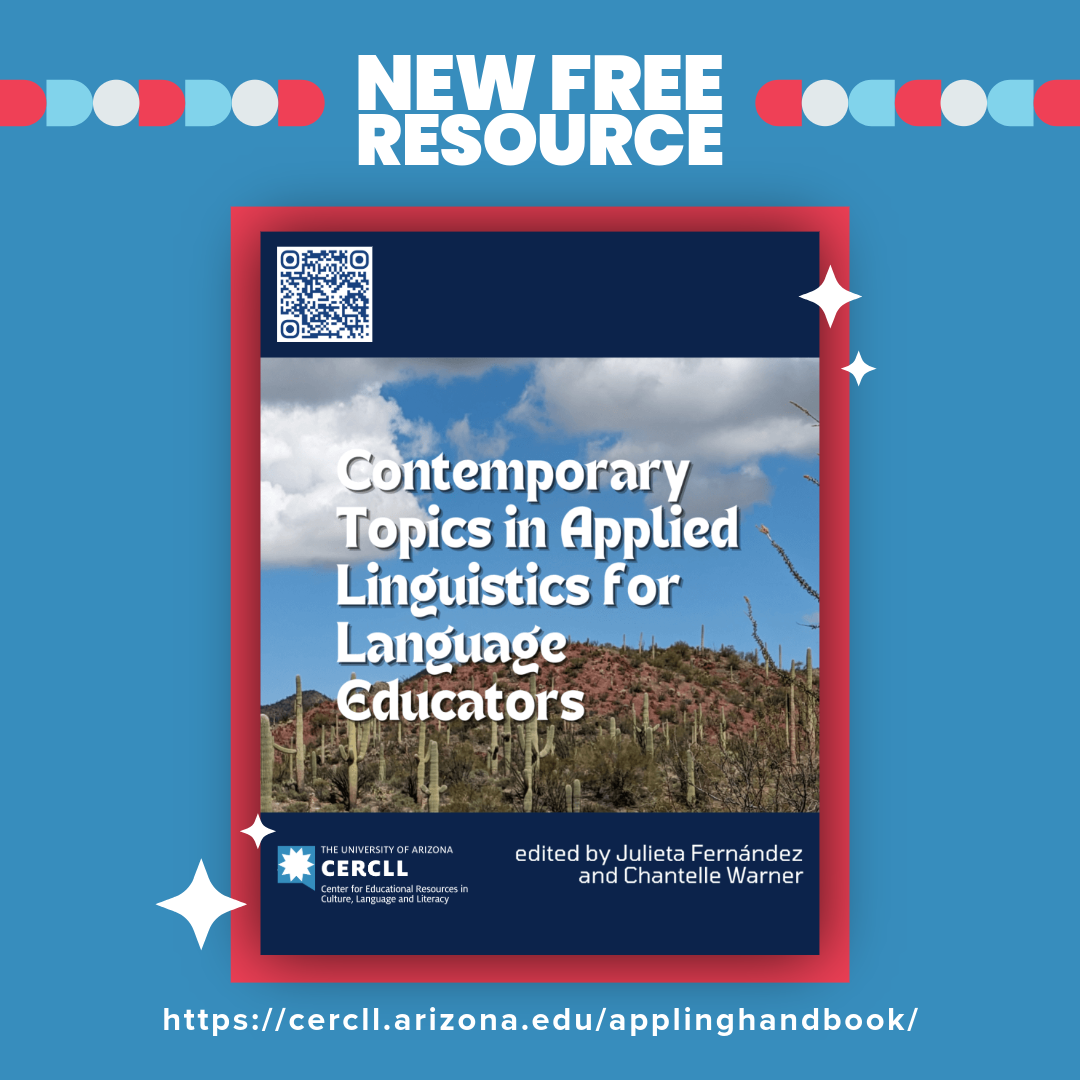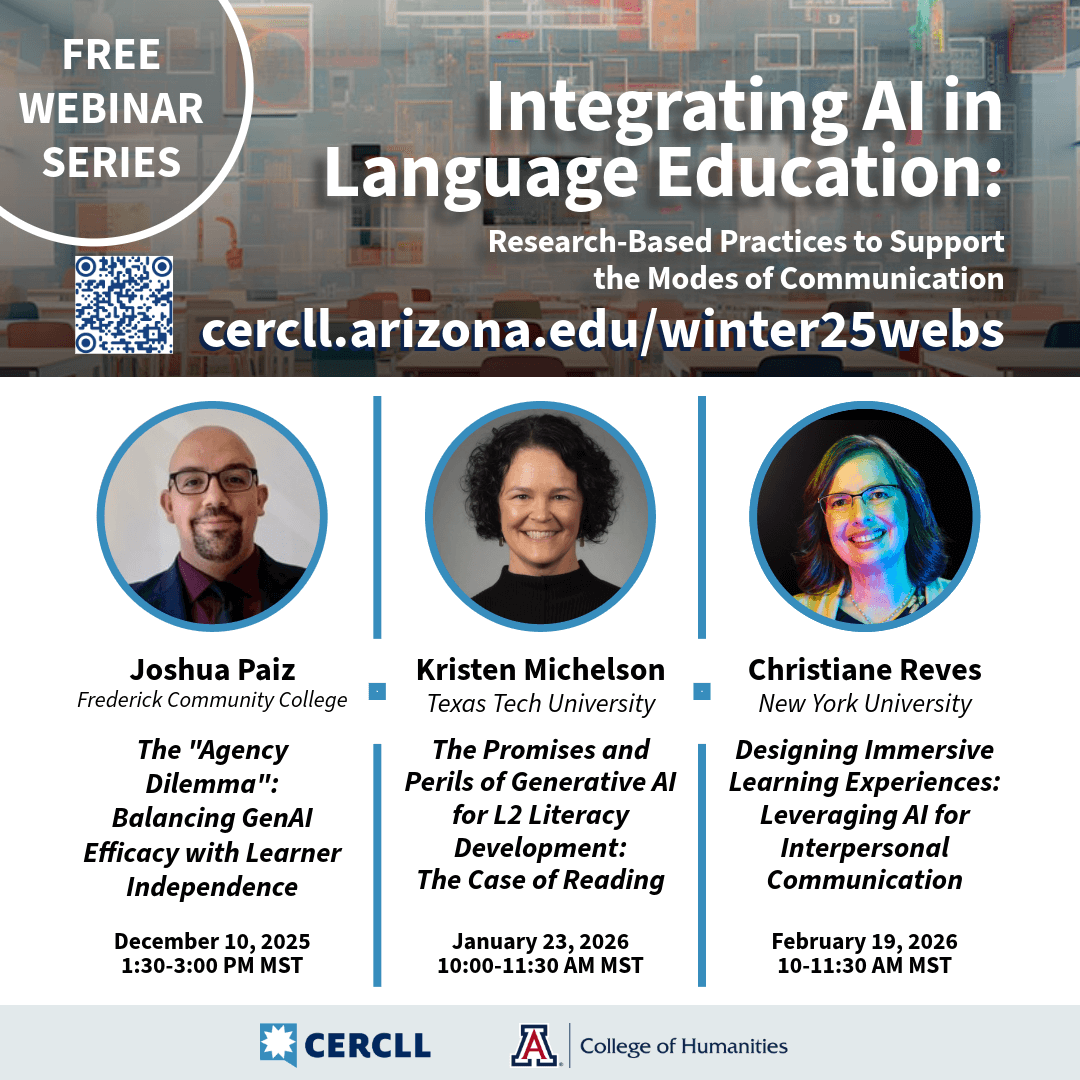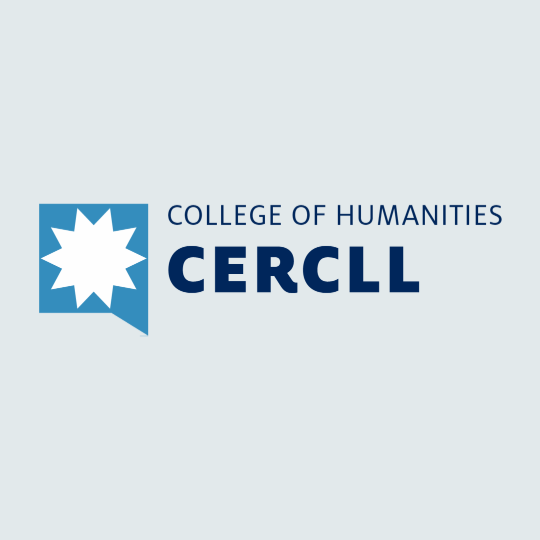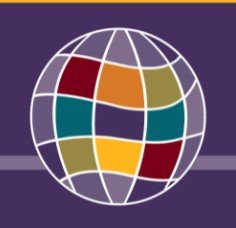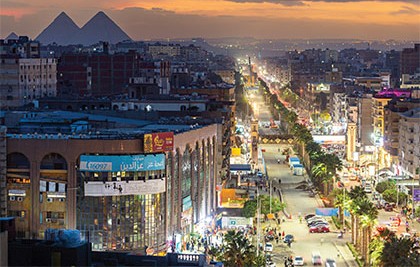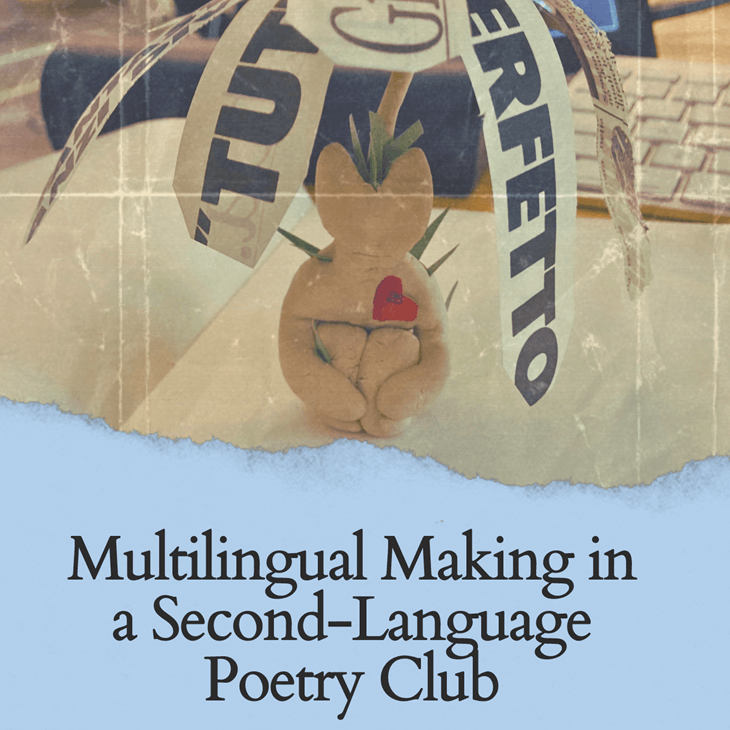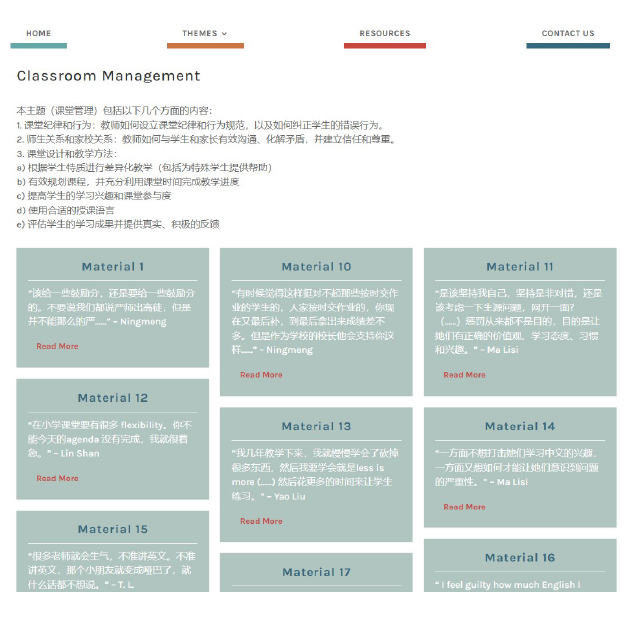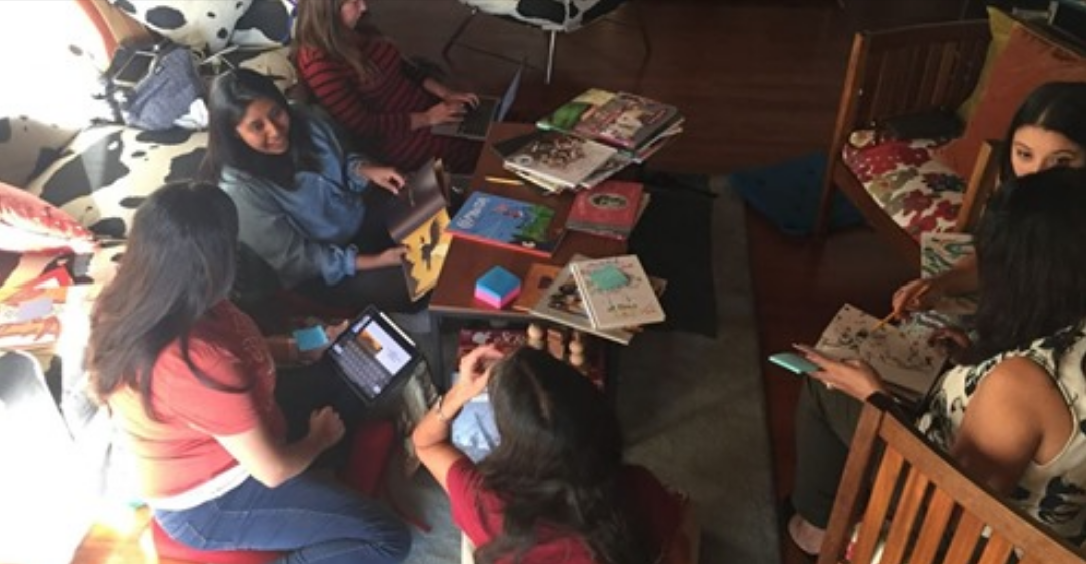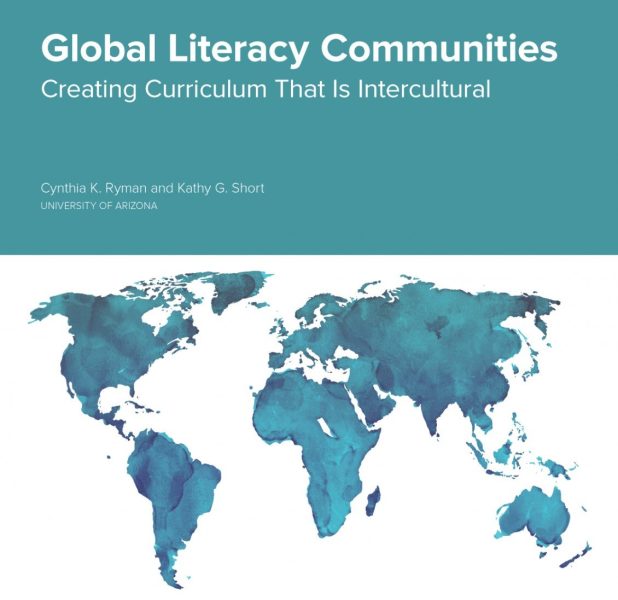
The Center for Educational Resources in Culture, Language and Literacy was a Title VI Language Resource Center that supported research related to language teaching and learning and provided educators with quality resources for teaching as well as professional development for the meaningful integration of culture, literacy, and world language study. Explore our website and learn more about how CERCLL worked to develop language capacity in the US.


